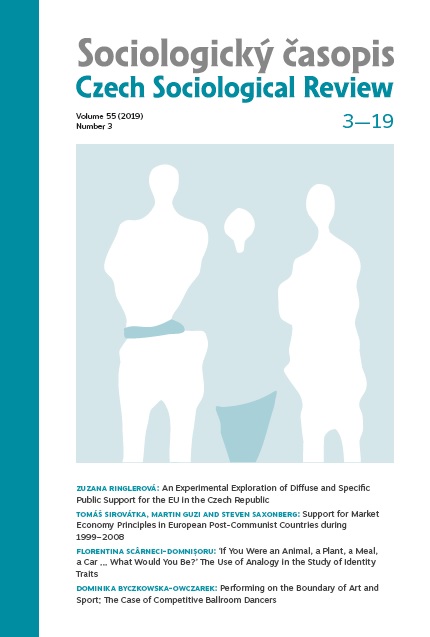Support for Market Economy Principles in European Post-Communist Countries during 1999–2008
Support for Market Economy Principles in European Post-Communist Countries during 1999–2008
Author(s): Tomáš Sirovátka, Martin Guzi, Steven SaxonbergSubject(s): National Economy, Welfare systems, Public Finances
Published by: AV ČR - Akademie věd České republiky - Sociologický ústav
Keywords: market economy; post-communist countries; free competition; private ownership; state regulation of the economy; welfare attitudes
Summary/Abstract: Since the fall of the communist regimes in Central and Eastern Europe in 1989, a neoliberal discourse has dominated the thinking of the political elite in post-communist countries, paving the way for unprecedented mass privatisation, economic deregulation, and other market reforms. In this article, we study the development of public support for market economy principles in post-communist countries compared to other European countries between 1999 and 2008, the period that directly followed the initial stage of market transformation. The article is based on data from the European Values Study covering 22 European countries for the years 1999/2000 and 2008/2009. In addition to analysing the trends, multilevel regression models are used to study the determinants and levels of support for the market economy in post-communist and other European countries. When controlling for individual and country-level variables, a significant increase in support for market economy principles is observed in the post-communist cluster, which is not the case in the other countries. There is some inconsistency in support for the individual principles of market economics: support exists in post-communist countries for the notion that the state should be responsible for the social and economic well-being of its inhabitants and for state regulation of the economy, while support is high for some market economy principles, such as free competition and private ownership. In other words, support for some kind of social market seems to prevail among people living in post-communist countries, based on the notion that the state should combine a market economy with relatively generous social policies.
Journal: Sociologický časopis / Czech Sociological Review
- Issue Year: 55/2019
- Issue No: 3
- Page Range: 319-345
- Page Count: 27
- Language: English

